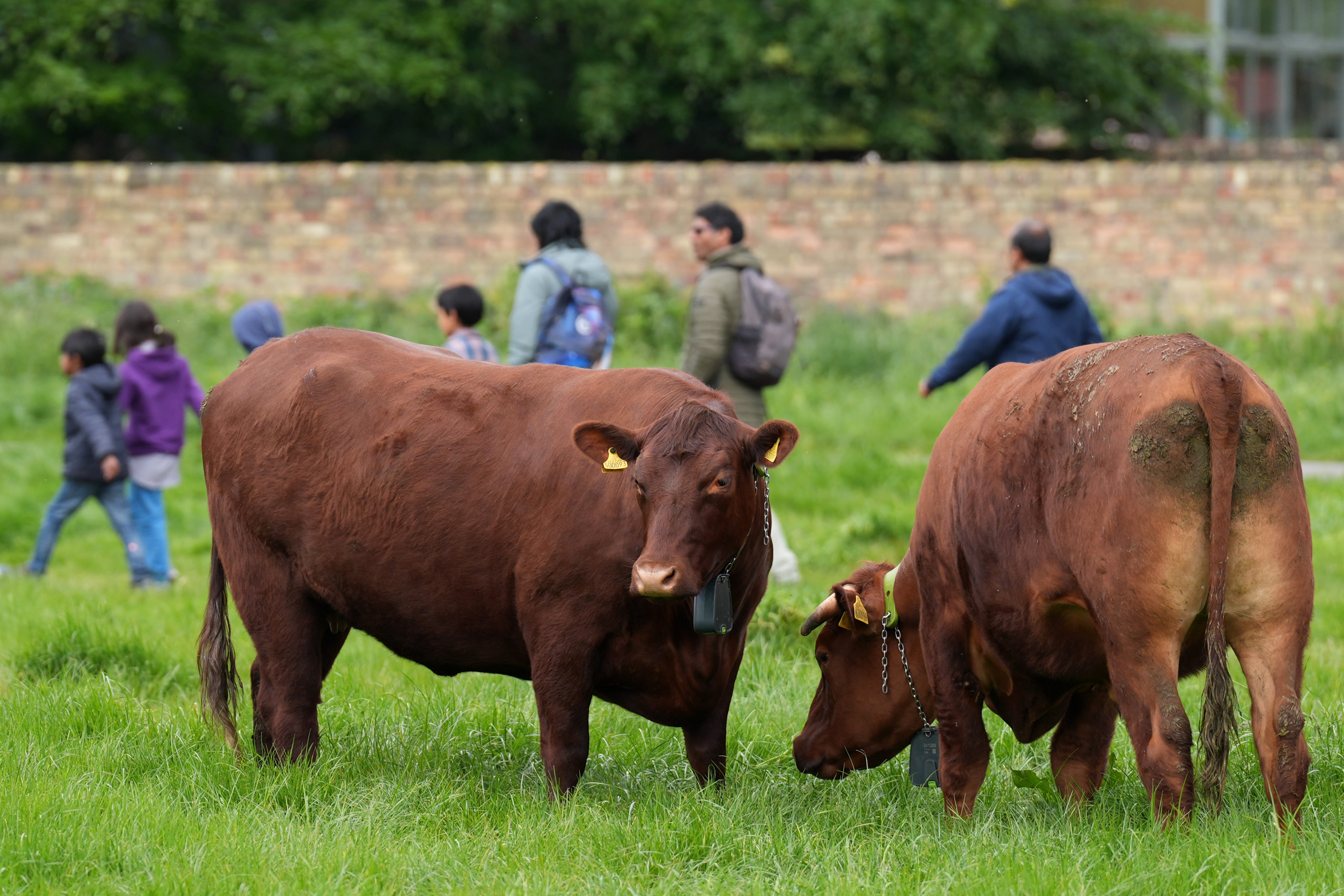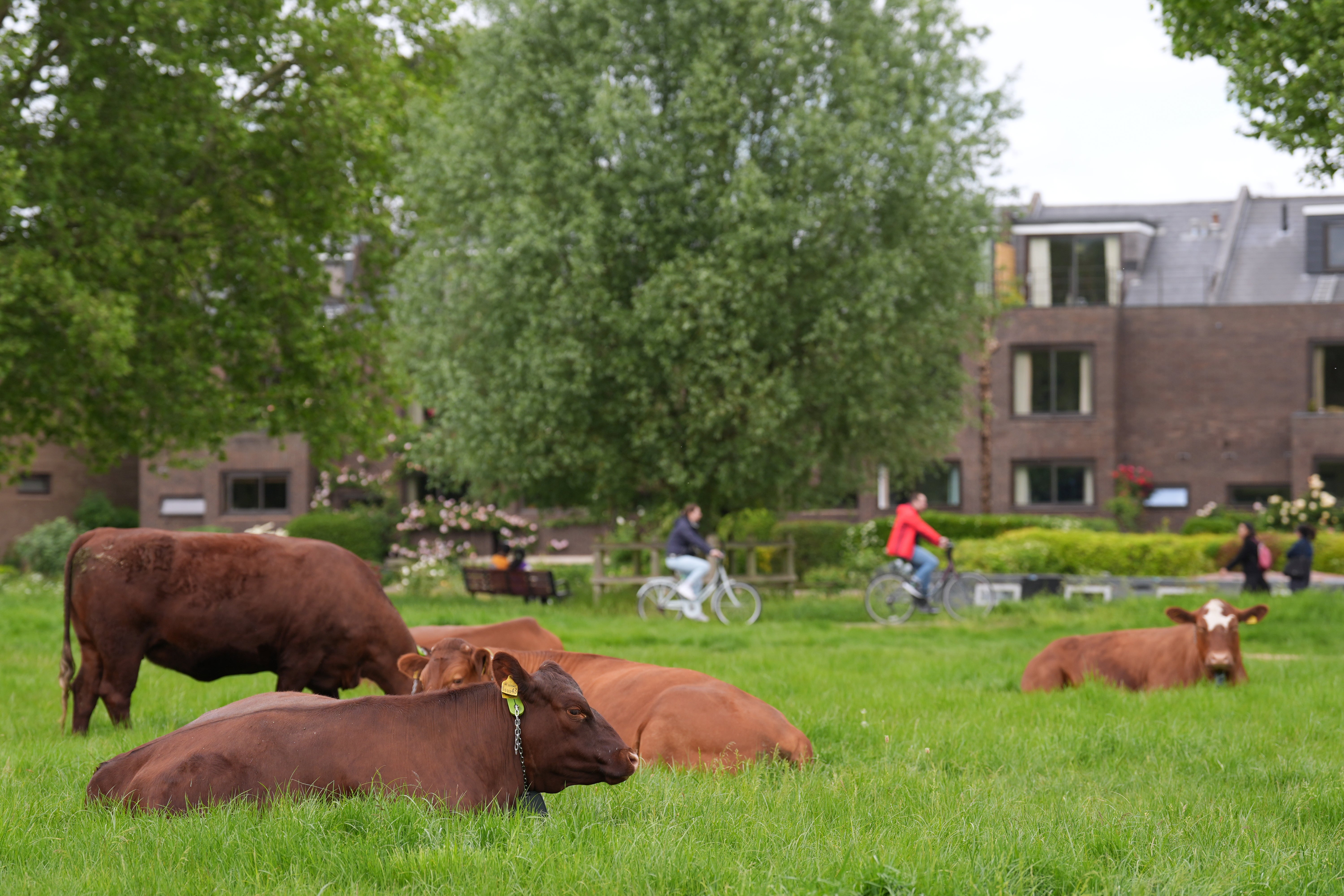
Cows that graze on on green space in central Cambridge have been given special GPS collars which stop them from falling in the river.
The collars use virtual fence technology to stop the animals from tumbling into the river.
The collars are controlled by solar-powered GPS and an app, the manufacturers have said.
A virtual boundary can be set using the app, and the cattle are trained to turn around when they hear an audio warning.
The warning sound starts at a low pitch and gradually gets higher as the animal moves through the boundary zone, with a mild electric pulse delivered if the whole scale has been played.

Animals then learn to recognise the warning sound and turn around to avoid the electric pulse, the firm said.
Cambridge City Council said an average of two to four cows fall into the river during a grazing season.
Last year, a farmer voiced fears that the centuries-old tradition of cows on the city’s commons could be under threat if a council budget for out-of-hours rescue was cut.
But the authority has given reassurance that it will “continue to fund grazing” and has “improved animal welfare with a technology that keeps the cows from falling into the river”.
Martin Smart, executive councillor for open space and city services for Cambridge City Council, said: “The council recognises the symbolic importance of the cows grazing on the commons.
“This is a special and unique feature of the city that is much loved by residents and visitors alike.
“Last year, the council carried out a public consultation on a range of options to make savings to ensure the council’s financial sustainability.

“The consultation included proposed changes to a 24-hour, seven-days-a-week rescue service for cows as between two to four cows fall into the river during the grazing season.
“In response to residents confirming their support for cows grazing on the commons, the council committed to continue to fund grazing and improved animal welfare with a technology that keeps the cows from falling into the river.”
Cattle were back on Cambridge’s commons this week.
In a statement on its website in November, after reports that the tradition of grazing could be under threat, the city council said it had “no plans to stop grazing”.
It said the authority funds a “24-hour pinder service to recover cattle, mostly after falling in the river”.
“This service, which costs around £10,000 of the annual budget, deals with two to four incidents annually, but often the fire and rescue service assist,” the statement said.
“To help design out the problem and costs, the council has introduced a geo (virtual) fence system that keeps cattle away from the river bank, off the footpaths and within defined grazing areas.
“It enables the graziers to check the whereabouts of their livestock via a mobile phone app.”
Cambridge’s famous urban cattle graze the commons from around April to October, in a tradition that dates back to the Middle Ages.
Cambridge college to cut ties with arms companies following student protests
NatWest reveals the impact of AI on its bank and workforce
Vaccine maker’s £1bn UK investment to create ‘hundreds of high-skilled jobs’
Lammy ‘begged’ to ‘save children’s lives’ in Gaza as MPs call for tougher action
GP jobs ‘crisis’ leaves qualified doctors considering unemployment benefits
Kate returns to royal garden parties in surprise appearance at Palace







